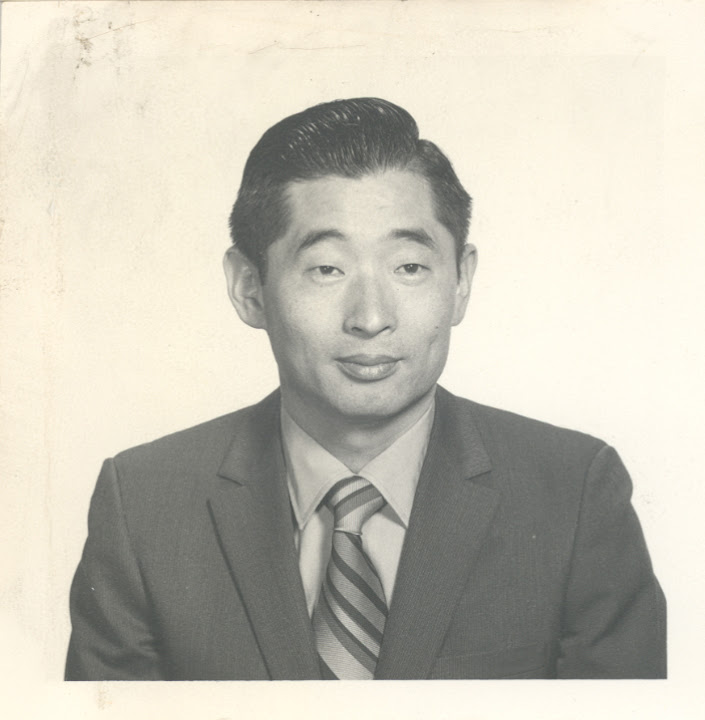On July 22, 2025, Mr. Kun Chae Bae passed away. If there was ever a giant in Chicago’s Korean community, my father was it. Though largely forgotten by the Korean community today, in his time, he was the real deal. Before his life ended, he started companies in the pharmaceutical, hospitality, and restaurant industries, owned a golf course, invested in real estate, helped found a bank, and built and operated broadcast television and radio stations across the United States and Guam, including WOCK-CD, which still operates in Chicago. His is the classic American success story, living every part of the American Dream.
Born in 1934, he loved to tell how he came to the United States in his 20s with $20 in his pocket and without speaking English. This was in the late 1950s, shortly after the Korean War. He arrived on a scholarship to Millikin University in Decatur, Illinois, graduated with a bachelor’s degree, and became a chemist.
In the summers, he worked at the Curtiss Candy Company in Chicago on the manufacturing line, making Baby Ruth candy bars. There, he made friends with other Koreans and eventually met my mother, a young woman from upstate New York, through mutual friends at the Moody Bible Institute. They married, but I’m getting ahead of myself.



He worked for several companies as a chemist before launching his own generic pharmaceutical firm, Bay Laboratories, in the 1970s. A classic entrepreneur and workaholic, he built it into a top generic pharmaceutical company. His products were sold at Walgreens, Osco Drug, CVS, Rite Aid, and even the U.S. Department of Defense. If you ever bought Baytussin, you purchased my father’s generic version of Robitussin.




Employing thousands over decades, he affected more than himself, his family, and his community—he influenced generations. His employees participated in the economy, married, had children, and their children had children, creating a ripple effect that will last as long as humanity. He left his mark on this world. Beyond his employees, countless others were touched by his entrepreneurial ventures. He was a one-man economic engine.
Around 1970 or 1971, he and my mother separated and later divorced. Perhaps cultural differences were too great at the time—who knows? My older brother and I split our time between our home in Chicago and my father’s workaholic lifestyle in Skokie, Illinois. He later remarried, had two more children, and settled in a nice house in Northfield, Illinois, a suburb of Chicago.













Bay Laboratories became My-K Labs (using the beginning of his 2nd wife’s name, Myoung, and his first name) after he sold the “Bay” part to Bayer. In the late 1980s, he sold My-K Labs, closing his pharmaceutical chapter. But he didn’t rest or sit on the money, despite advice from accountants and attorneys. Instead, he did what entrepreneurs do: he helped found one of the first Korean-American-owned banks in Chicago, Foster Bank, at Foster and Kedzie. He purchased the infamous Purple Hotel from Hyatt, acquired Chapel Hill Golf Club in McHenry, Illinois, and ventured into broadcasting by renting local cable time to produce what may have been Chicago’s first Korean-language news program. His efforts were recognized at a White House ceremony honoring successful minority SBA businesspeople, where he met President Ronald Reagan. On June 23, 2004, Chicago bestowed an honorary street name, “Kun Chae Bae Way,” at Foster and Kedzie for his contributions. Typically humble, he refused to let the sign be erected, not wanting to appear above the Korean community. I didn’t understand it then and still don’t. I keep one of the four signs at my home in Georgia, displayed in my ornamental garden.
In his later years, he stumbled again and nearly lost everything. Through creative dealings with creditors and businesses, he kept his ventures alive. These setbacks were not failures but bumps in a long road of a classic American success story. He helped countless people, especially in the Korean community, sometimes to his detriment, always remembering what it was like to arrive in this country with nothing but sweat equity and unmatched ambition.





Like Bill Gates, Elon Musk, and Steve Jobs, my father was a business juggernaut, though on a smaller scale. Chicago should feel a profound loss for one of its own.

Comments
3 responses to “Chicago just lost a Korean-American giant”
What an amazing story. I agree, he was one of those legendary, untold giants. Thank you for sharing.
Wow! Thank you for sharing this. What an amazing, extraordinary man. I’m so glad I read this, but sorry I was never able to meet him. We’re very sorry for your loss Kevin. And the Korean community’s loss as well.
Certainly He is one of guru in early Korean American society and beyond! I had a special memory with his. Both of is confronted church dispute on the than pastor’s retirement is due. Be tried to mediate the Pastor and members who claim his retirement according to the church constitution.